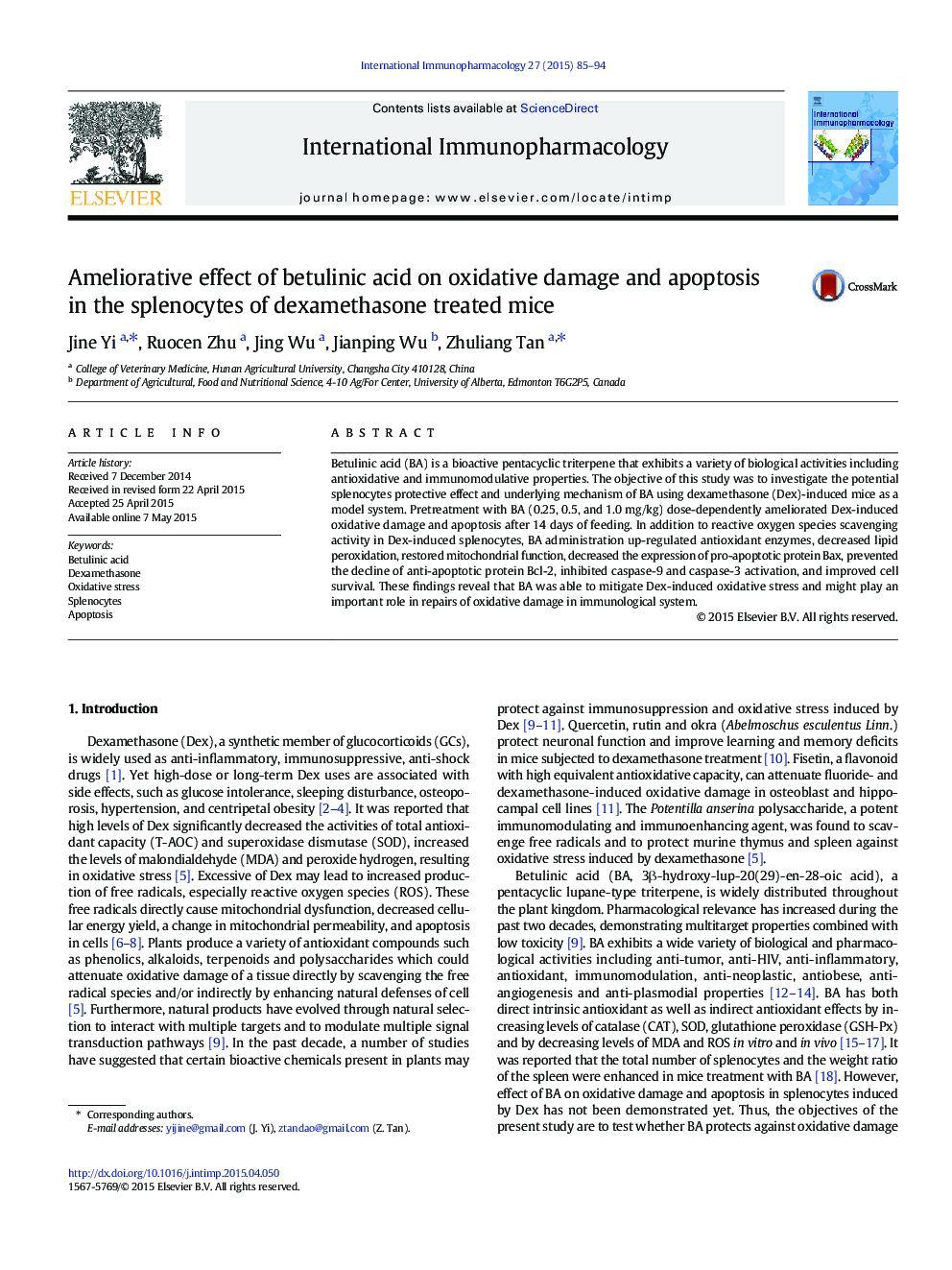| Article ID | Journal | Published Year | Pages | File Type |
|---|---|---|---|---|
| 2540663 | International Immunopharmacology | 2015 | 10 Pages |
•Dex exposure leads to splenocytes apoptosis by oxidative damage.•BA alleviates oxidative stress and splenocytes apoptosis induced by Dex.•Protective effect of BA on splenocytes via mitochondrial signal pathway
Betulinic acid (BA) is a bioactive pentacyclic triterpene that exhibits a variety of biological activities including antioxidative and immunomodulative properties. The objective of this study was to investigate the potential splenocytes protective effect and underlying mechanism of BA using dexamethasone (Dex)-induced mice as a model system. Pretreatment with BA (0.25, 0.5, and 1.0 mg/kg) dose-dependently ameliorated Dex-induced oxidative damage and apoptosis after 14 days of feeding. In addition to reactive oxygen species scavenging activity in Dex-induced splenocytes, BA administration up-regulated antioxidant enzymes, decreased lipid peroxidation, restored mitochondrial function, decreased the expression of pro-apoptotic protein Bax, prevented the decline of anti-apoptotic protein Bcl-2, inhibited caspase-9 and caspase-3 activation, and improved cell survival. These findings reveal that BA was able to mitigate Dex-induced oxidative stress and might play an important role in repairs of oxidative damage in immunological system.
